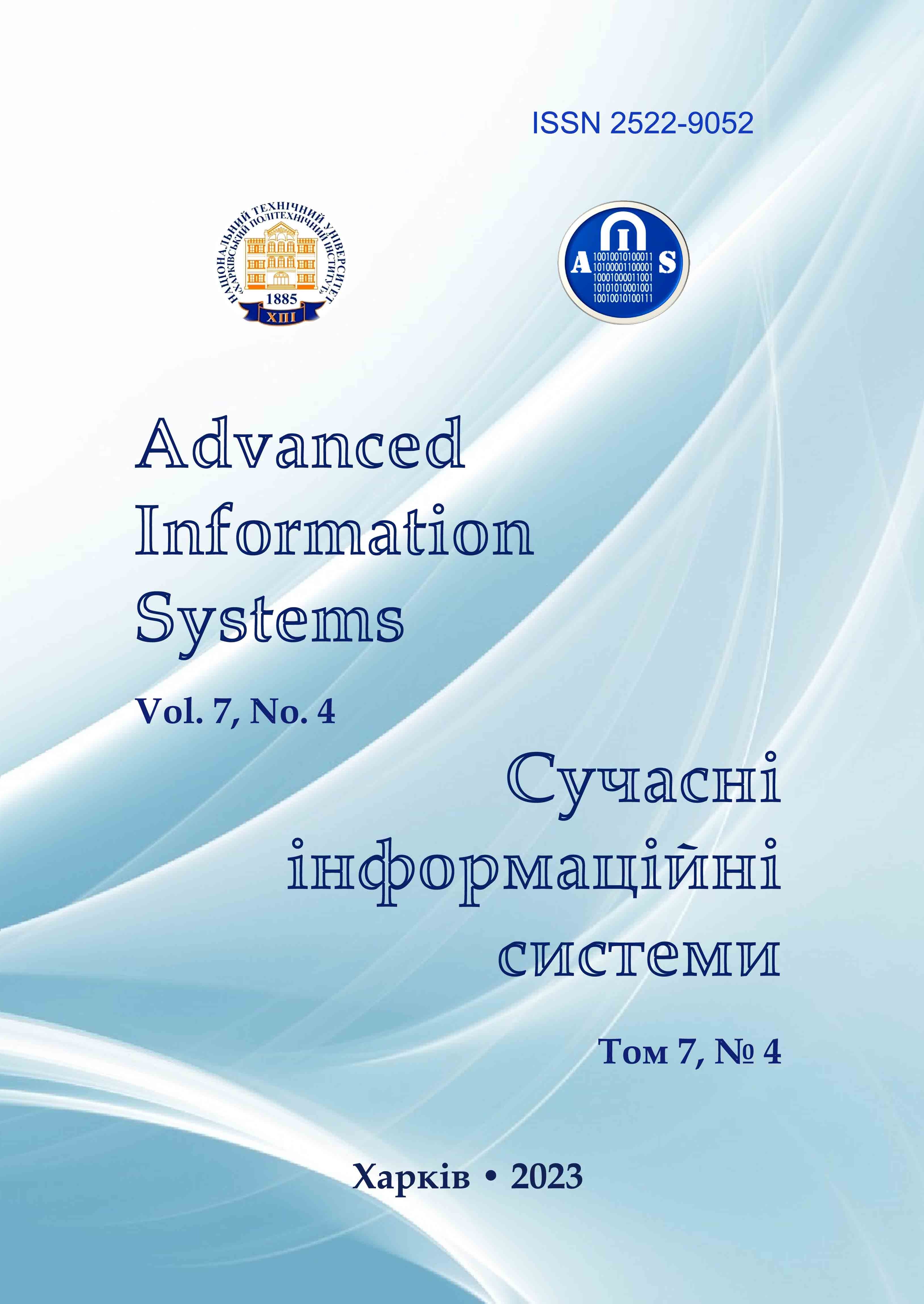ASSESSING AND FORECASTING THE STATE OF DETERIORATING SYSTEMS WITH THE USE OF MODIFIED REGRESSION POLYNOMIALS ON THE BASIS OF FUNCTIONAL APPROXIMATION OF THEIR COEFFICIENTS
Main Article Content
Abstract
Object of research is technical state of deteriorating systems whose operating conditions depend on a large number of interacting factors. The caused inhomogeneity of the sample of initial data on the technical state leads to impossibility of correct use of traditional methods of assessing the state of a system (meaning methods using mathematical tools of regression analysis). Subject of research is developing a method for constructing a regression polynomial based on the results of processing a set of controlled system parameters. Non-linearity of the polynomial describing the evolution of the technical state of real systems leads to an increase in the number of regression polynomial coefficients subject to estimation. The problem is further complicated by the growing number of factors affecting the technical state of the system. In these circumstances, the so-called <small sample effect> occurs. Goal the research consists in developing a method for constructing an approximation polynomial that describes evolution of the system state in a situation where the volume of the initial data sample is insufficient for correct estimating coefficients of this polynomial. The results obtained. The paper proposes a method for solving the given problem, based on implementation of a two-stage procedure. At the first stage a functional description of the approximation polynomial coefficients is performed; and this radically reduces the number of regression polynomial parameters to be estimated. This polynomial is used for preliminary estimation of its coefficients with the aim of filtering out insignificant factors and their interactions. At the second stage, parameters of the truncated polynomial are estimated by means of using standard technologies of mathematical statistics. Two approaches to constructing a modified polynomial have been studied: the additive one and the multiplicative one. It has been shown that the additive approach is, on average, an order of magnitude more effective than the multiplicative one.
Article Details
References
Seber, G.A.F. and Lee, A.J. (2003), Linear Regression Analysis, Second Edition, John Wiley & Sons, Inc., Hoboken, N.-J., doi: http://dx.doi.org/10.1002/9780471722199
Anderson T.W. (2003), An Introduction to Multivariate Statistical Analysis, 3rd Edition, Wiley-Interscience, N.-J., 752 p., available at: https://www.amazon.com/Introduction-Multivariate-Statistical-Analysis/dp/0471360910
Braverman, E.M. and Muchnyk, I.B. (1983), Structural methods of empirical data processing, Nauka, 464 p., available at: https://search.rsl.ru/ru/record/01001165664
Xiao‐Jian, Yi, Shi, Jian and Hou, Peng (2017), “Complex System Reliability Analysis Method: Goal‐Oriented Methodology”, System Reliability, Intechopen Ltd, pp. 3–42, available at: https://www.intechopen.com/chapters/55929
Druzhinin, G.V. (1977), Reliability of automatic systems, 336 p., available at: http://www.toroid.ru/dryjininGV.html
Kuchuk, N., Mozhaiev, O., Mozhaiev, M. and Kuchuk, H. (2017), “Method for calculating of R-learning traffic peakedness”, 2017 4th International Scientific-Practical Conference Problems of Infocommunications Science and Technology, PIC S and T 2017 – Proceedings, pp. 359–362, doi: https://doi.org/10.1109/INFOCOMMST.2017.8246416
Todinov, M. (2006), “Reliability analysis of complex systems based on the losses from failures”, International Journal of Quality & Reliability Management, Vol. 23(6), pp. 696-718, doi: https://doi.org/10.1142/S0218539306002161
Kramer, G. (1946), Mathematical methods of statistics. Princeton University Press, Princeton, 288 p., available at: https://www.amazon.com/Mathematical-Methods-Statistics-Harald-Cram%C3%A9r/dp/0691005478
Mozhaev, O., Kuchuk, H., Kuchuk, N., Mykhailo, M. and Lohvynenko, M. (2017), “Multiservice network security metric”, 2nd International Conference on Advanced Information and Communication Technologies, AICT 2017 – Proceedings, pp. 133–136, doi: https://doi.org/10.1109/AIACT.2017.8020083
Kubon, M., Kaczmar, I. and Findura, P. (2019), “Reliability of technical systems and the methodology for calculating MTBF using Flexsim computer simulation”, E3S Web of Conf., Vol. 132(1), doi: http://dx.doi.org/10.1051/e3sconf/201913201012
Hlavcheva, D., Yaloveha, V., Podorozhniak, A. and Kuchuk, H. (2021), “Comparison of CNNs for Lung Biopsy Images Classification”, 2021 IEEE 3rd Ukraine Conference on Electrical and Computer Engineering, UKRCON 2021 – Proceedings, pp. 1–5, doi: https://doi.org/10.1109/UKRCON53503.2021.9575305
Himmelblau, D. (1972), Applied nonlinear programming, McGraw-Hill, N.Y., 498 p., available at:
https://www.amazon.com/Applied-Nonlinear-Programming-Mautner-Himmelblau/dp/0070289212
Kovalenko, A. and Kuchuk, H. (2022), “Methods to Manage Data in Self-healing Systems”, Studies in Systems, Decision and Control, Vol. 425, pp. 113–171, doi: https://doi.org/10.1007/978-3-030-96546-4_3
Raskin, L. Sukhomlyn, L., Sokolov, D. and Vlasenko V. (2023), “Multi-criteria evaluation of the multifactor stochastic systems effectiveness”, Advanced Information Systems, vol. 7, no. 2, pp. 63–67, doi: https://doi.org/10.20998/2522-9052.2023.2.09
Kovalenko, A., Kuchuk, H., Kuchuk, N. and Kostolny, J. (2021), “Horizontal scaling method for a hyperconverged network”, 2021 International Conference on Information and Digital Technologies (IDT), Zilina, Slovakia, doi: https://doi.org/10.1109/IDT52577.2021.9497534
Raskin, L.G. and Pustovoitov, P.E. (2002), “Solution of a multi-product inventory management problem by a probabilistic criterion”, Bulletin of NTU KhPI, Series “System Analysis, Management, Information Technologies”, No. 13, pp. 49-53.
Raskin, L., Sira, O. and Ivanchykhin, Y. (2017), “Models and methods of regression analisis under conditions of fuzzy initial data”, Eastern-European J. of Adv. Techn., No. $(4(88)), pp. 12–29, doi: https://doi.org/10.15587/1729-4061.2017.107536
